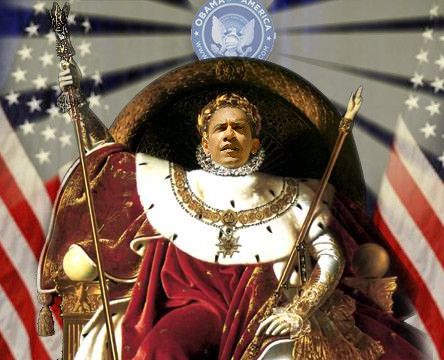Rule by decree is a style of governance allowing quick, unchallenged creation of law by a single person or group, and is used primarily by dictators and absolute monarchs.
The expression is also sometimes used as a pejorative and polemical hyperbole when describing actions of democratic governments that are perceived to unduly bypass parliamentarian or popular scrutiny.
Rule by decree allows the ruler to arbitrarily create law, without approval by a legislative assembly. WIKIPEDIA
The considerations of democratic politics are a messy business. There is an inordinate amount of delay, obfuscation, debate, backroom dealing, uncomfortable compromise, and unintended consequences to the participants that are part of crafting any acceptable law that will hold the respect of the constituents of the law. Oh, to be King and do what is Necessary and Right without having to participate in such caterwauling.
President Obama announced to the nation on Thursday, November 20th, 2014 that he no longer felt bound by the constitutional process for the development of laws to secure immigration reform. As Ed Morrissey put so appropriately, Obama was invoking the “Sick and Tired” clause of the Constitution. In a rambling speech full of contradictions, Obama stated that immigration reform failures lay securely at the hands of the Republican led House of Representatives, who in his mind refused to engage a “bipartisan” bill put forward by the Senate because they refused to participate in a simple up or down vote, instead wanting to potentially craft their own version for eventual conciliation. Putting aside that little ball of nonsense as to how legislation is crafted, the two years in which President Obama led a party with full control of both the House and Senate 2009-2011 and did nothing on the issue speaks to the inanity of his argument. The President, therefore, unable or unwilling to participate in the necessary politics of crafting bills in a democracy, declared he was sick and tired and was unwilling to wait the two months that would be required to engage a new congress.
This is a blog, and not a book, but I could write a book on how wrong this all is. Thankfully as I have never written a book, many infinitely more talented are willing to do it for me on this underlying theme of this individual’s version of being President. But there is something so inherently cynical in an individual who professes to be a constitutional law expert to be so ignorant of the measured reason so carefully tendered into every one of the Constitution’s components. Politics is about persuasion, and it’s extremely telling that this President is more comfortable engaging in discourse with the mullahs of Iran than the Republicans of the United States Senate. He has determined to demand that elections have consequences when the electorate determined to take a chance on him and his vision, than ignore electoral consequences when the electorate repudiates him.
Jonah Goldberg has spent a significant portion of his writing life dissecting this unique facet of the left’s interpretation of democracy and has outdone himself with a biting summary of Obama and his modus operandi. It is of course the darker and more linear goals of socialist dogma that that drives Obama and extra-constitutionalists like him. There is a desire to always bend history toward the outcome that is in their mind most egalitarian, most correct, and it befalls them to nurse the masses that cannot see the way to the better world gently, or ruthlessly, toward the eventual desired outcome. America is an anachronism to such a concept, in that it exists a country with a Constitution, not a group of people living an idea.
How will it all end, in this two years to go with an extra-constitutional executive, who perceives himself as an ultimate arbiter? We can only hope that the father of Communism, Friedrich Engels, was correct when he stated:
The worst thing that can befall a leader of an extreme party is to be compelled to take over a government in an epoch when the movement is not yet ripe for the domination of the class which he represents and for the realization of the measures which that domination would imply …
Engels, The Peasant War in Germany (1850)
